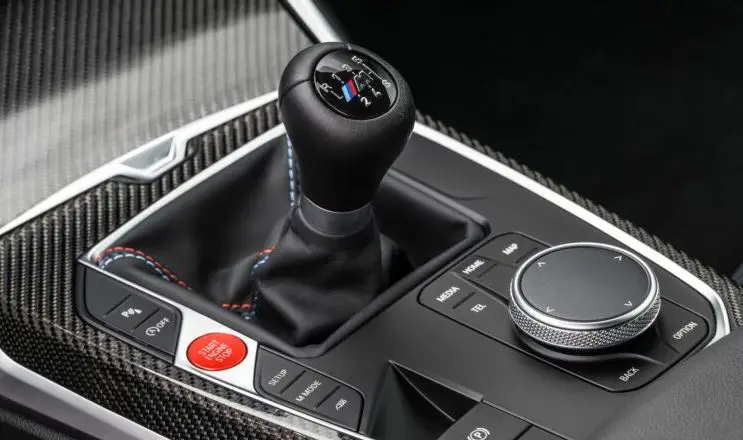There’s no denying the fact that loud cars are very noticeable and it’s hard to escape them when they come roaring down the street. We may just view them as annoying, or we might look at them more favorably, but which viewpoint is fairer? In today’s blog, we’re looking at why people choose to make their cars louder, ways it can be done, and other questions including the legality of making your car louder.
Why Would Someone Want to Make Their Car Louder?
If loud car sounds irritate you, the answer to this question might forever remain a mystery, but if you’re willing to keep an open mind, people’s reasons may surprise you.
First, they boost the sound for the sheer thrill. For those who improve the sound in their cars, they feel it gives a new thrilling dimension to their driving experience and that the new sound makes the car feel more sporty and dynamic.
Second, there are potential performance boosts. To what extent sound boosts can increase performance is the subject of some debate. There is evidence to show that removing the muffler and allowing more exhaust to freely flow through might offer a small boost in horsepower.
Third, it can make shifting easier and more optimal. Those who drive cars on a racetrack or other competitive setting may argue that it’s critical to know when exactly the best time is to shift up or down, and the best way to do that is to gauge the engine noise.
Fourth, they do it for attention. The final reason in the list is arguably the only truly critical one, and that’s the fact that a louder car turns heads and gets more attention. Some people do enjoy that feeling, for better or worse.
What Are the Different Sources of Sound from a Car?
When people are thinking about augmenting the sound in their cars, where do they even begin? The chief source of all sound coming from your car is the internal combustion engine, of course. Within the combustion chambers are countless tiny explosions that are happening constantly within the air and fuel mixture.
The sound of these tiny explosions is what you hear coming out of the exhaust, so the sound primarily begins in the engine bay and then works its way through the exhaust system. The reason it’s not even close to being as loud as it should be is that installed within the exhaust system are things like the muffler, which help to reduce the sound level as much as possible.
To many who explore boosting their engine sound, it’s not really just about making the car sound “louder” but rather making the car sound “better.”
How to Make Your Engine Sound Better
-
Get a new engine
This would clearly be a very expensive move, but if you have the cash and the wherewithal, the most direct thing you can do is simply upgrade the engine to a larger and more powerful one. Engines with more cylinders like a V6 or V8 will naturally produce more sound than a smaller 3-cylinder or inline-4.
-
New air intake
A new cold air intake to replace your regular intake can help to boost sound because it is richer in oxygen, which in turn creates more powerful combustion. Furthermore, the airflow in a cold air intake is less restrictive, allowing more air to rush into the engine. The boost to sound is actually just a bonus on this one, since new intakes can improve your car in other ways.
- Drop-in filters
In a similar vein to the air intake, a more basic modification you can undertake is to upgrade the drop-in panel filter, which will also allow more airflow than the OEM filter. That’s a simpler and more affordable alternative to a new cold-air intake.
- Bypass valve to blow-off valve
When you switch out the more standard bypass valve in your car’s turbo to a blow-out valve, the main difference is that the blow-off valve vents air into the atmosphere whereas the bypass valve recirculates it in the intake tract. The blow-out valve, therefore, is a nice addition for improving the sound of your engine.
How to Make Your Exhaust Sound Better
- Use an aftermarket exhaust
Aftermarket kits are great for getting the sound that you want, and the best news is that there are so many products to choose from. The main USP of any good aftermarket exhaust is boosting airflow and thus releasing a richer, fuller sound from the exhaust tip. It’s important to invest in quality when it comes to a new exhaust, however, since most OEM exhausts are made to very exacting standards. Don’t buy the cheapest exhaust just for a bit of a different sound.
- Get a set of headers
Headers help to make your car sound more aggressive and will complement a sound-boosting aftermarket exhaust very nicely. Headers won’t necessarily impact the sound of your exhaust while idling, but you’ll certainly hear the difference when you press on the gas pedal. Some also may point to headers’ ability to offer additional horsepower.
- Upgrade your muffler or do a ‘muffler delete’
The muffler is chiefly responsible for lowering the sound your car makes. Some people think about doing a “muffler delete” where the muffler is essentially by-passed, which obviously creates a very loud sound, but you might be facing tickets from the cops (see below). A better solution is to upgrade your muffler to a performance muffler with a straight-line design that allows air to flow a lot more freely.
Do Exhaust Tips Change the Sound?
Contrary to popular opinion, exhaust tips do not make any significant contribution to augmenting your engine or exhaust sound. They do look great, though, so you can still invest in them for their pure aesthetic value.
Are Loud Exhausts Illegal?
States have different rules when it comes to noise limits, but they tend to sit around the 75-80 decibel (dB) range. Most traffic noise is measured at around 70 dB, which is also about the same as a vacuum cleaner. Your car horn is 110 dB. By taking the above steps you may be turning your car into a nuisance noise maker susceptible to getting tickets. At the very least you could get pulled over and given a stern talking to by a local cop.
The exhaust itself isn’t illegal — unless you remove all sound-limiting devices because you have to have at least 1 — but the noise it produces could be.
Conclusion: Is Improving the Car’s Sound Worth It?
Is it worth the possible tickets, the annoyance of your neighbors, the ruination of the peace of your neighborhood? If you look at it this way, it doesn’t really seem like a worthwhile project to “improve” the sound on your car. You may look at it from that perspective, but others won’t.
If, on the other hand, you’re a racing enthusiast and you want to dial up the noise your car makes or gain every bit of horsepower you can, then the above-mentioned improvements are both helpful and smart. Consider your usage, and reflect on the value of these modifications.









